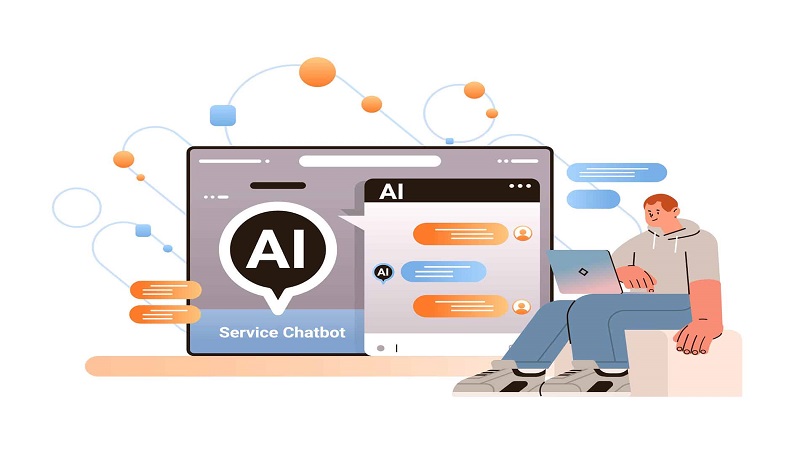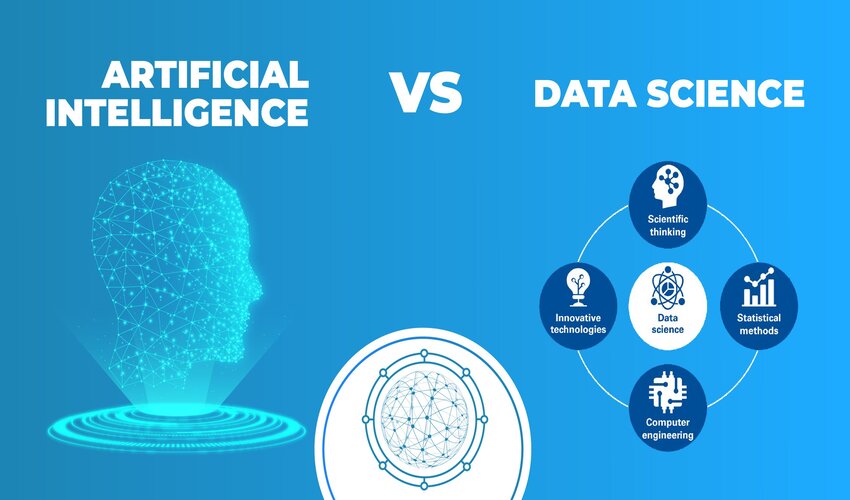Customers don’t interact with fintech products the way they interact with traditional digital services. A failed UPI payment at midnight, a blocked card before an international flight, or a stalled KYC verification when someone is trying to open an account can trigger urgency, anxiety, and frustration. They can also make or break long-term trust.
Fintech users expect answers immediately. Not tomorrow. Not after “business hours.” And not after waiting 45 minutes in a queue for a human agent.
This is precisely why AI agents have become central to the next wave of customer experience innovation. They are not chatbots. They are not FAQ deflectors. They are fully autonomous, context-aware digital workers capable of resolving queries end to end, around the clock, with accuracy levels that match or exceed human support teams. This rapid shift is a clear reflection of the rising influence of AI agents in fintech today.
The shift is not subtle. It is systemic. And fintech platforms that deploy AI agents for 24×7 customer support are discovering a competitive moat that is hard to replicate.
Why 24×7 Customer Support Has Become a Fintech Imperative
The financial layer of the internet operates continuously. Transactions don’t sleep. Identity checks don’t pause. Disputes, refunds, and verifications happen whenever customers need them, not when support centers open.
A few realities are shaping this new demand curve:
- Fintech is built on trust, and trust is time-sensitive. When a customer asks, “Why is my money stuck?” or “Why was my EMI deducted twice?” The need for instant clarity is non-negotiable.
- Support volume spikes are unpredictable. A payments outage, an API slowdown, a regulatory update, or a festive-season spike can multiply support tickets by a factor of five to ten within minutes.
- Human teams can’t scale in real time. Hiring more support agents or extending shifts solves today’s problem, not tomorrow’s growth.
Against this backdrop, fintech players realized that traditional automation and static chatbots were insufficient. What they needed was autonomy. They needed intelligence. They needed systems that could independently think, decide, act, and resolve.
That is exactly what AI agents deliver.
What Makes AI Agents Different From Chatbots?
Most fintech platforms have experimented with chatbots. And most fintech users have been disappointed by them.
Scripted bots fail because they rely on predefined flows. They break when queries fall outside expected patterns. They cannot solve complex issues. They cannot handle nuance. And customers sense that instantly.
AI agents operate fundamentally differently.
How AI Agents Work
AI agents combine:
- Multi-step reasoning
- Contextual memory
- Dynamic workflows
- Policy-aware decisioning
- Direct API execution
- Real-time personalization
- Autonomous task completion
This allows them to behave like intelligent support analysts, not rule-based responders.
Example: end-to-end resolution
Customer: “My KYC was rejected again. What exactly is the issue?”
AI Agent:
- Pulls the user’s KYC attempt data
- Identifies document mismatch
- Provides exact corrective guidance
- Re-initiates KYC flow
- Confirms expected processing time
This level of autonomy transforms support from “responding” to “resolving.”
How AI Agents Deliver 24×7 Autonomous Fintech Support
AI agents remain operational continuously because of four architectural pillars that separate them from legacy automation systems.
1. Deep integration with fintech infrastructure
AI agents plug into:
- Core banking systems
- Payment rails
- Wallet ledgers
- EMV KYC systems
- Loan origination and LMS platforms
- Investment and trading systems
With this access layer, agents can:
- Fetch real-time balances
- Verify transactions
- Track refunds
- Provide trade settlement updates
- Check EMI due dates
- Resolve disputes
In other words, they can answer what humans answer without human intervention.
2. Real-time policy intelligence
Fintech support is governed by:
- Regulatory mandates
- Fraud thresholds
- Chargeback timelines
- Refund policies
- Risk scoring rules
AI agents operate within these rules, ensuring every decision aligns with compliance and audit requirements. This is where fintech leaders see one of the biggest benefits: consistent, error-free support that eliminates human deviation.
3. Cross-channel continuity
AI agents operate across:
- In-app chat
- Web support
- SMS
- Voice IVR
This means a customer can start on WhatsApp, continue on the app, and switch to email without repeating anything. All context travels with the AI agent.
4. Escalation intelligence
AI agents do not replace human teams; they augment them intelligently. When a query involves:
- Sensitive risk flags
- High-value transactions
- Compliance exceptions
- Sophisticated dispute cases
the AI agent escalates it to the right human with complete context, structured data, and recommended next steps. This reduces handling time and improves first-contact resolution.
High-Value Use Cases for Fintech Customer Support
AI agents are driving meaningful automation across the fintech stack. Here are the most common, high-impact areas.
1. Payments
- Failed transactions
- Stuck settlements
- Refund tracking
- Wallet ledger mismatches
- Cashback offer eligibility
This category alone accounts for more than 60 percent of L1 queries in payments companies, making it a strong automation target.
2. Digital banking and neobanking
- Balance checks
- Card blocking unblocking
- Transaction disputes
- Beneficiary addition help
- Account status issues
AI agents deliver the responsiveness customers need when money movement is involved.
3. Lending and BNPL
- EMI reminders
- Duplicate debit issues
- Loan application status
- eNACH failures
- Document re-submission
AI agents accelerate the lending pipeline by reducing resolution latency.
4. Trading platforms
- Order execution status
- Fund withdrawal issues
- Mandate approvals
- Settlement delays
With high-volume intraday activity, this segment benefits from instant support.
5. Insurtech
- Policy lookup
- Premium payment issues
- Claim status updates
- Document collection guidance
These workflows rely on accuracy and clarity, areas where AI agents excel.
The ROI Fintechs Are Realizing with AI Agents
AI agents aren’t being adopted because they are trendy. They are being adopted because they generate measurable, defensible business value.
1. Automation of up to 90 percent of Tier-1 queries
Fintechs see immediate reduction in repetitive, high-volume support tickets.
2. Massive SLA improvements
Customers receive instant responses, regardless of time or channel.
3. 24×7 coverage at near-zero marginal cost
Night-shift escalations disappear. Support teams stop firefighting.
4. Higher CSAT and NPS
Customers get accurate, context-aware resolutions in seconds, driving long-term trust.
5. Reduced operational cost
Support bandwidth is optimized, allowing teams to focus on complex tasks rather than routine troubleshooting.
6. Improved compliance and auditability
Every decision is logged, consistent, and policy-aligned.
What Does it Take to Deploy AI Agents for Continuous Fintech Support?
While the promise is strong, successful implementation requires a disciplined approach. High-performing fintech organizations follow a clear deployment framework.
Step 1: Identifying automation-ready workflows
Fintech teams analyze:
- High-volume queries
- SLA-sensitive issues
- Multi-step repetitive workflows
- API availability
- Policy layers
This helps define the AI agent’s initial scope.
Step 2: Designing agent skills
Each skill addresses a specific workflow:
- Fetch account balance
- Initiate refund
- Validate KYC
- Check loan status
- Resolve payment failure
Skills are modular and can be expanded over time.
Step 3: Mapping data and integrations
AI agents require secure API access to core systems. This integration layer enables autonomous action across banking, payments, lending, and compliance modules.
Step 4: Setting rules and guardrails
Fintech complexity demands:
- Decision boundaries
- Escalation criteria
- Fraud flags
- Compliance constraints
These are encoded into the agent’s operating logic.
Step 5: Testing, training, and optimization
AI agents improve with:
- Real-world interactions
- Error pattern analysis
- Policy updates
- New skill deployments
The result is a continuously improving support ecosystem.
Why AI Agents Are Becoming a Competitive Advantage in Fintech
As fintech markets mature, product features are becoming standardized. Payment flows, KYC processes, loan journeys, and onboarding experiences look increasingly similar across platforms.
The differentiator now is the experience layer.
Companies that deliver instant clarity, real-time support, and always-on assistance win customer trust, and trust translates directly into retention, referrals, and lifetime value.
AI agents create a strategic moat in three ways:
- They reduce friction at every point where money, identity, or risk is involved. This eliminates the biggest source of customer dropout.
- They scale without incremental cost. Which means a fintech startup gets the same support sophistication as a large enterprise.
- They build a continuous feedback loop. Every interaction makes the system smarter, more accurate, and more predictive.
The adoption curve is clear: autonomous support is not the future; it is the present. And fintech platforms that delay investment will face competitive disadvantages that are difficult to reverse.
Conclusion: The Fintechs Winning in 2025 and Beyond Are Powered by AI Agents
24×7 customer support is no longer a nice-to-have for fintech platforms. It is a core requirement for trust, retention, and growth. AI agents are not replacing human teams; they are amplifying them, absorbing repetitive workloads, enforcing compliance, and delivering instant resolutions at any scale.
Fintech companies that deploy intelligent AI agents today gain an operational advantage that compounds over time. They convert frustrated users into loyal customers. They reduce overhead. They build resilient support operations. And they differentiate in a crowded, margin-sensitive market.
The next generation of fintech leaders will not be defined by how fast they move money. They will be defined by how fast they resolve user friction.
AI agents are the foundation of that future.















